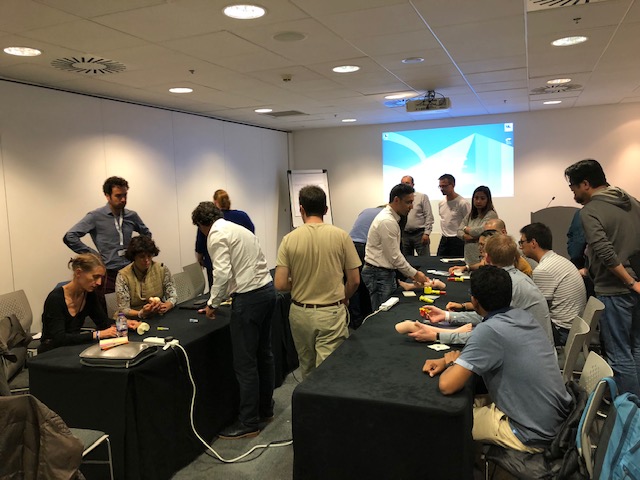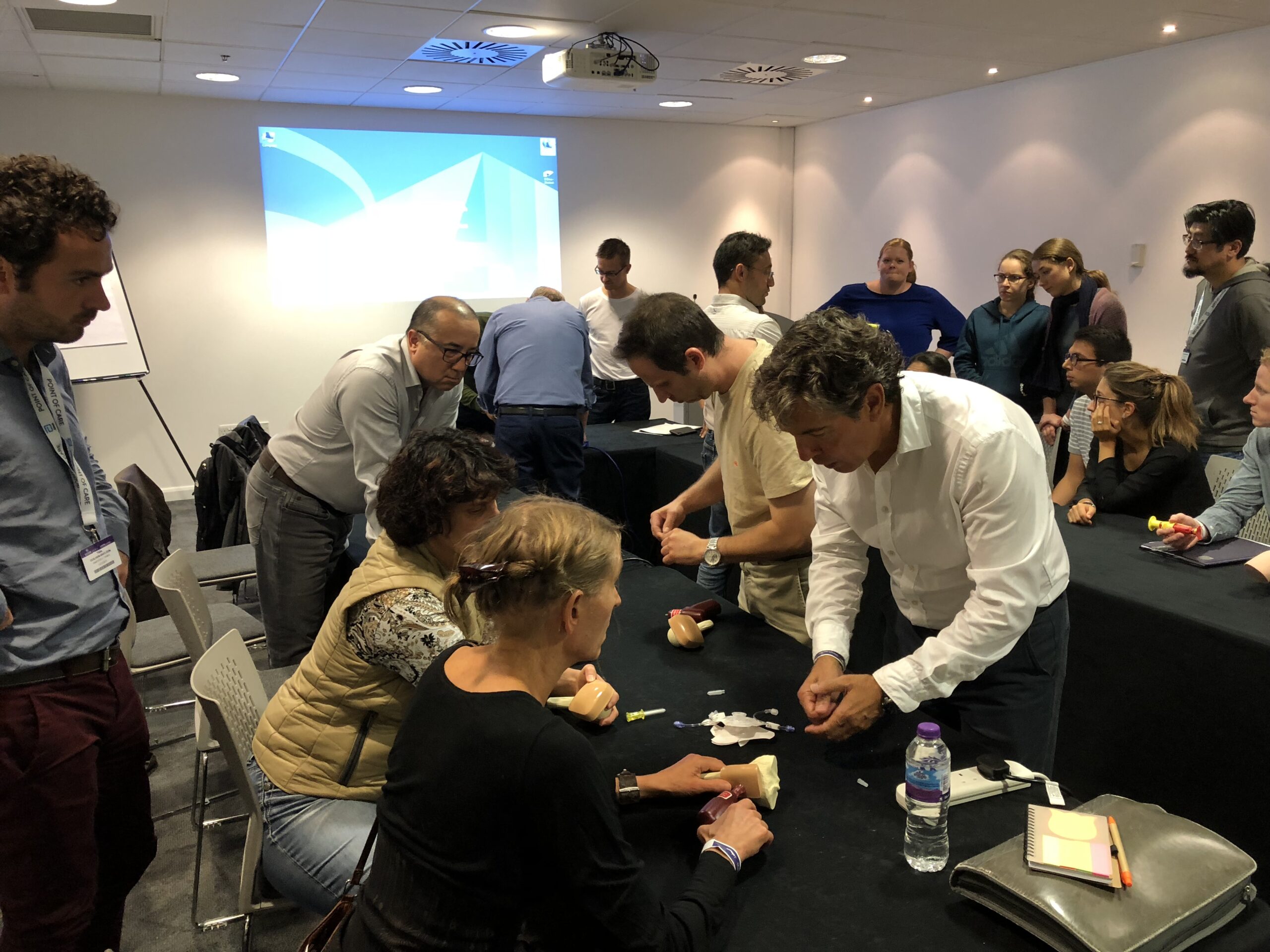
Advanced Paediatric Emergency Care (APEC)
Format – on site
This course will be offered on Saturday, 27 September, at 8:30 – 18:00 CEST and Sunday, 28 September, at 08:30 – 12:30 CEST, at VIECON, Vienna.
Overview
This course is developed by the Paediatric Branch of the European Society for Emergency Medicine. The branch wants to promote and facilitate the dissemination of knowledge in PEM in Europe and the world through meetings, courses, research, publications, and various clinical activities.
The content of this course will:
Objective
The objective of this course is to provide participating physicians with both knowledge and advanced skills in recognizing and managing a wide spectrum of Pediatric Emergencies.

Learning outcomes
For who
Resident/Postgraduate and every physician taking care of sick children.
The course participant should have some experience of working in an environment where ill and injured children of all ages are seen and treated. And willing to discuss management and challenge tutors in small group discussions.
Programme
A more detailed programme will be provided later
- Lectures on how to recognise a sever sick child
- Paediatric assessment triangle
- ABCDE
- Reel cases and challenging approaches
- Challenging the audience (based on their experiences)
- Providing evidence medicine on specific topics
- Small discussion groups

Educational material
The educational material will be delivered to delegates in advance.
Registration
The costs for this course are:
€ 320 for physicians
€ 190 for nurses, paramedics, trainees and students
All fees include 13% VAT
Please register through your MyEUSEM account by clicking on the EUSEM Congress registration button. On the pre-course tab you can select the pre-courses you would like to join.
Faculty
Course Director: Prof Said Hachimi-Idrissi, BE
- Dr Itai Shavit (Israel)
- Dr Jabeen Fayyaz (Canada)
- Dr Najib Nasrallah (Israel)
- Dr Muhamed Elhady Muhammed Elgasim (Ireland)
- Dr Nordia Thompson-Newell (Jamaica)
- Dr Ruth M. C. Löllgen (Sweden)
- Dr Naveen Poonai, Canada
| Time | Day 1 – 27 September |
| 08:00-08:30 | Welcome and Introduction |
| 08:30-09:00 | Overview of course objectives, agenda Pediatric Assessment Triangle (PAT) |
| 09:00-10:00 | Airway and Breathing: Advanced management of respiratory distress (e.g., asthma, croup, bronchiolitis). Includes procedural demonstrations of BVM, CPAP, and BiPAP. |
| 10:00 -10:30 | Coffee Break |
| 10:30 – 11:30 | Circulation: Fluid resuscitation, vasopressors, and septic shock management. Introduction to POCUS for shock evaluation. |
| 11:30-12:45 | Disability: Managing neurological emergencies (seizures, head trauma, and raised intracranial pressure). |
| 12:45 – 13:45 | Lunch Break |
| 13:45-15:45 | Concurrent Simulation Session: 60 min each (Sim Station A: Resp Distress, Asthma / Bronchiolitis & Sim Station B: Shock Septic/ Cardiogenic shock) Respiratory failure and septic shock management Focus on teamwork and CRM principles on Each Station |
| 15:45-16:15 | Coffee Break |
| 16:15 -17:00 | Exposure: Rash-associated emergencies (e.g., meningococcemia, toxic shock syndrome) and advanced diagnostic approaches. |
| 17:00-17:30 | Wrap-Up and Discussion: Review Day 1, key takeaways, and participant Q&A. |
| Time | Day 2 – 28 September |
| 08:30-9:00 | Day 2 Warm-Up: Recap of Day 1, participant feedback, and advanced concepts overview |
| 09:00-10:00 | Cardiac Emergencies Management of dysrhythmias, congenital heart disease, and post-arrest care Hands-on practice with defibrillation and cardioversion. |
| 10:00 – 10:30 | Coffee break |
| 10:30 – 12:30 | Concurrent Trauma and Procedural Skills Stations: 60 min each (Skill Stations A: Pediatric Trauma, MVC with Multisystem Trauma & Skill Stations B: CNS, Status Epilepticus) Managing pediatric trauma, and Status epilepticus |
| 12:30-13:00 | Final Wrap-Up and Evaluation Participant feedback, discussion of key learning points, and certificate distribution |